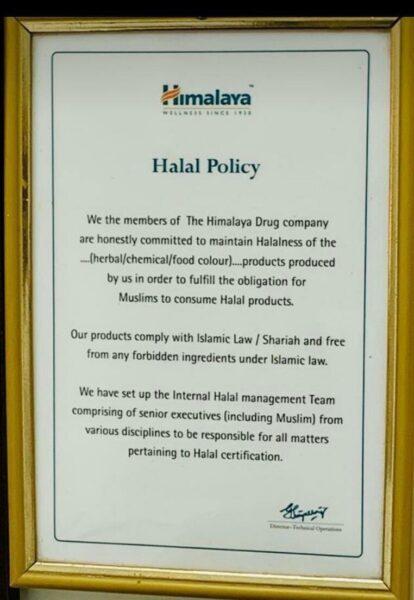A photo of the company Himalaya has currently become viral on social media. The photo shows a standard letter written by the pharmaceutical company Himalaya using halal-certified meat in its products.
The photo claims that the company maintains halalness of herbal, chemical, food products for Muslims to consume halal products. It further claims that the products of the company follows the Islamic law/sharia and are free from any prohibited elements under Islamic law.
As soon as the post went viral on Twitter, a protest against the company was launched stating that it would boycott Himalayan products until it issued clarifications on the issue.
However this is not the first time such posts have gone viral on social media. Earlier in July 2021 several social media users made a claim which suggested that the products such as neem, tulsi and other supplements of the Himalayan drug company contains halal-certified meat. It also claimed that Himalayan cosmetics, tulsi, and neem capsules are made from open gelatin which is made from the meat of cows or pigs.
Halal is an Arabic word that translates to “permissible” in English. In the Quran, the word halal is contrasted with haram (forbidden).
On the other hand Halal certificate is a document that guarantees that products and services aimed at the Muslim population meet the requirements of Islamic law and therefore are suitable for consumption in both Muslim-majority countries and in Western countries where there are significant population group who practice Islam (France, Germany, United Kingdom, Spain).
Pig or cow fats, alcohol or meat of animals like chicken, goats are used in aromatic products, lipsticks and lip balms and other cosmetics. Some of which are prohibited by the Islamic law. As a result, halal-certified cosmetics and pharmaceuticals only certifies that the company does not include any elements prohibited for Muslims.
Companies are protecting halal certificates for their products so that they can be exported to Islamic countries.









